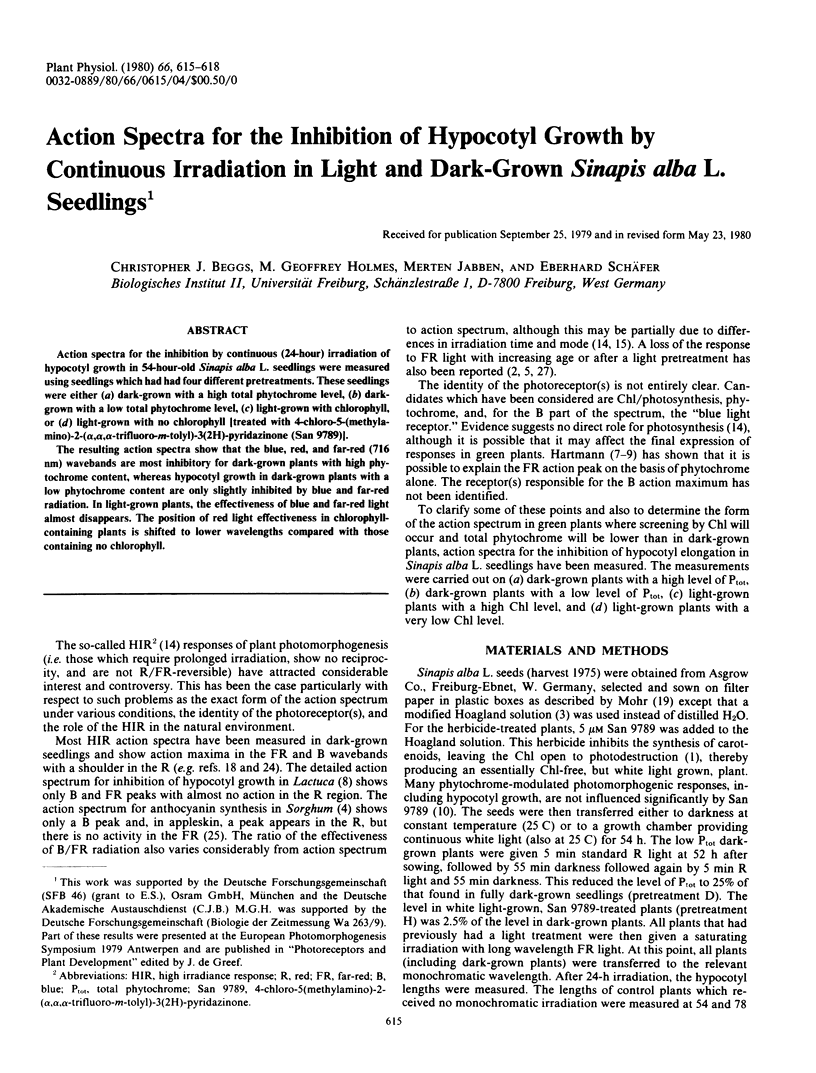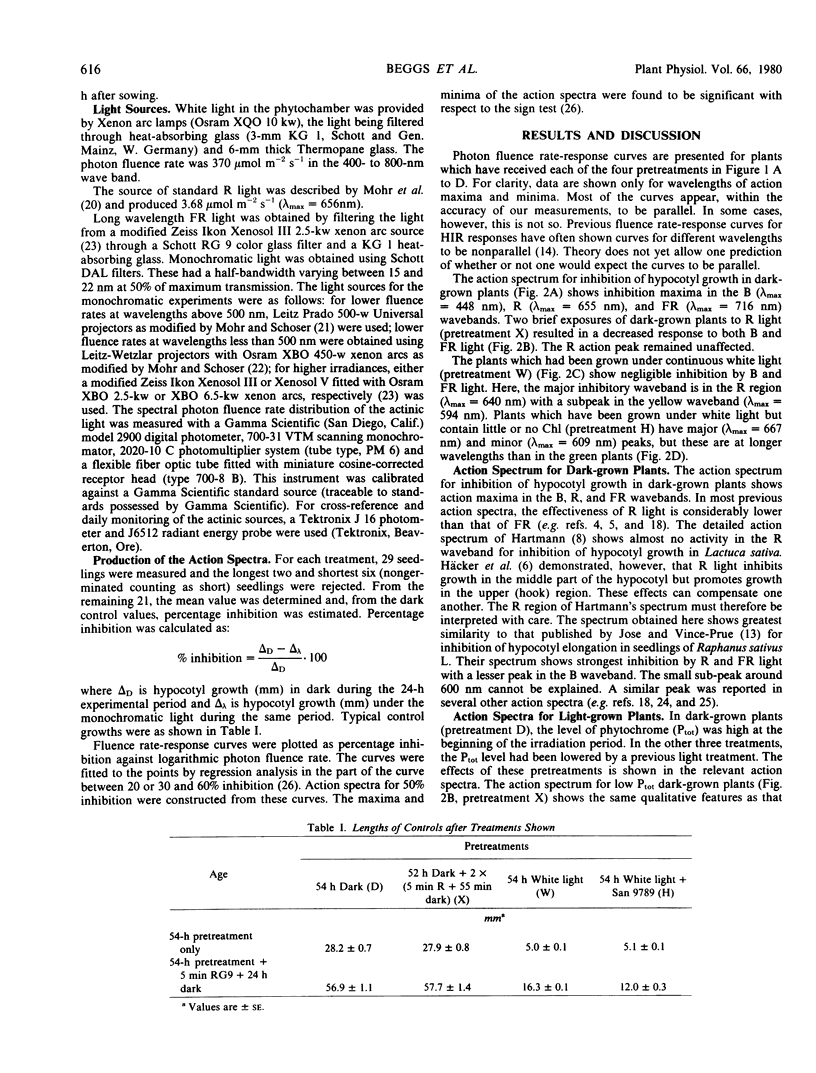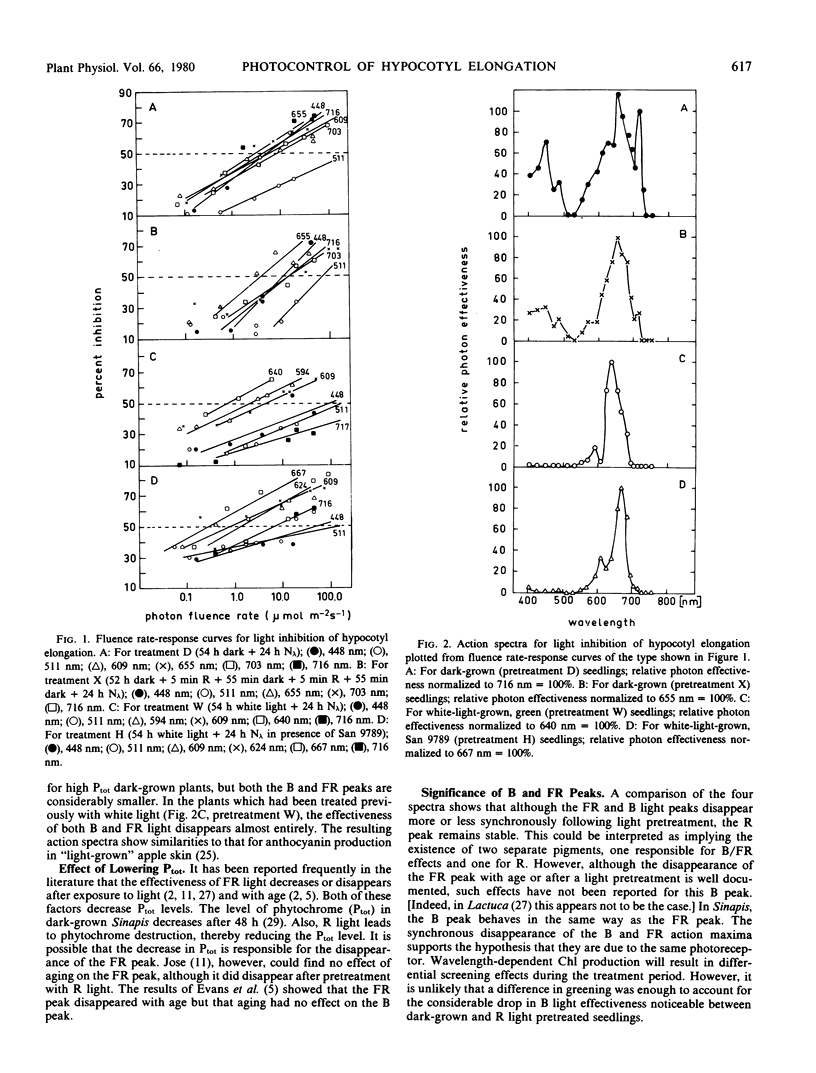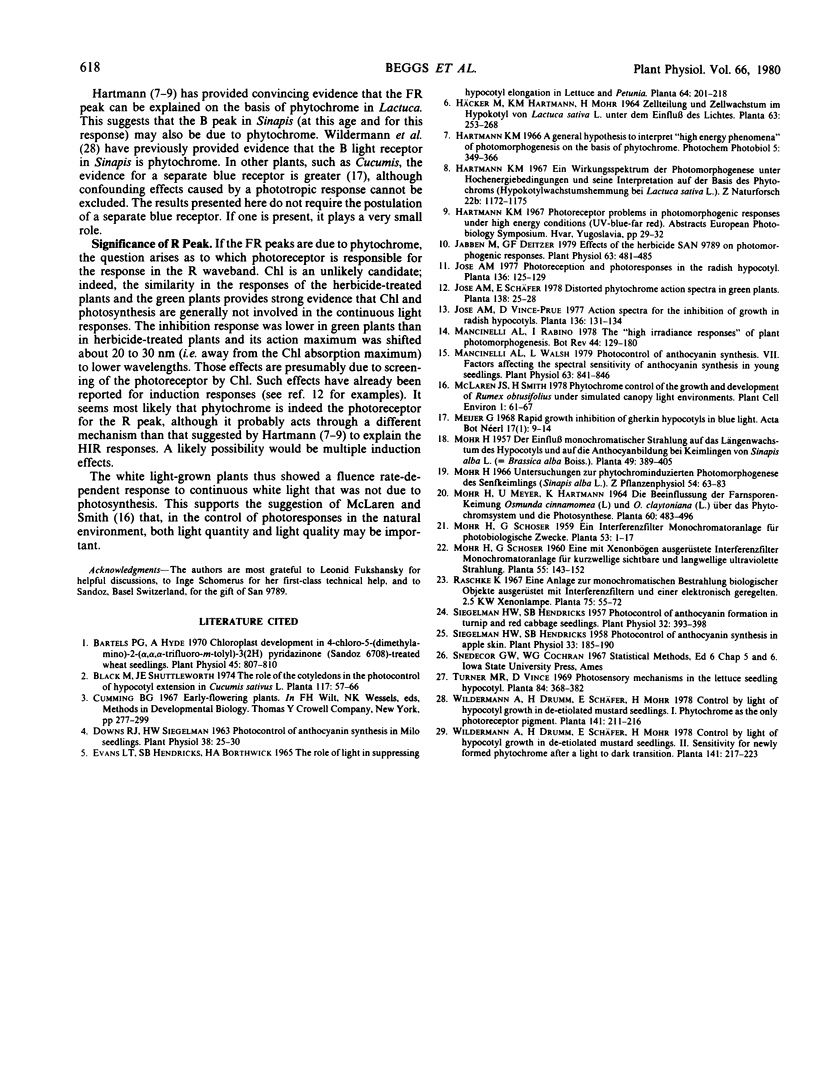Abstract
Action spectra for the inhibition by continuous (24-hour) irradiation of hypocotyl growth in 54-hour-old Sinapis alba L. seedlings were measured using seedlings which had had four different pretreatments. These seedlings were either (a) dark-grown with a high total phytochrome level, (b) dark-grown with a low total phytochrome level, (c) light-grown with chlorophyll, or (d) light-grown with no chlorophyll [treated with 4-chloro-5-(methylamino)-2-(α,α,α-trifluoro-m-tolyl)-3(2H) -pyridazinone (San 9789)].
The resulting action spectra show that the blue, red, and far-red (716 nm) wavebands are most inhibitory for dark-grown plants with high phytochrome content, whereas hypocotyl growth in dark-grown plants with a low phytochrome content are only slightly inhibited by blue and far-red radiation. In light-grown plants, the effectiveness of blue and far-red light almost disappears. The position of red light effectiveness in chlorophyll-containing plants is shifted to lower wavelengths compared with those containing no chlorophyll.
Full text
PDF



Selected References
These references are in PubMed. This may not be the complete list of references from this article.
- Bartels P. G., Hyde A. Chloroplast Development in 4-Chloro-5-(dimethylamino)-2-(alpha,alpha,alpha-trifluoro-m-tolyl)-3 (2H)-pyridazinone (Sandoz 6706)-treated Wheat Seedlings: A Pigment, Ultrastructural, and Ultracentrifugal Study. Plant Physiol. 1970 Jun;45(6):807–810. doi: 10.1104/pp.45.6.807. [DOI] [PMC free article] [PubMed] [Google Scholar]
- Downs R. J., Siegelman H. W. Photocontrol of Anthocyanin Synthesis in Milo Seedlings. Plant Physiol. 1963 Jan;38(1):25–30. doi: 10.1104/pp.38.1.25. [DOI] [PMC free article] [PubMed] [Google Scholar]
- Hartmann K. M. Ein Wirkungsspektrum der Photomorphogenese unter Hochenergiebedingungen und seine Interpretation auf der Basis des Phytochroms (Hypokotylwachstumshemmung bei Lactuca sativa L.) Z Naturforsch B. 1967 Nov;22(11):1172–1175. [PubMed] [Google Scholar]
- Jabben M., Deitzer G. F. Effects of the herbicide san 9789 on photomorphogenic responses. Plant Physiol. 1979 Mar;63(3):481–485. doi: 10.1104/pp.63.3.481. [DOI] [PMC free article] [PubMed] [Google Scholar]
- Mancinelli A. L., Walsh L. Photocontrol of Anthocyanin Synthesis: VII. Factors Affecting the Spectral Sensitivity of Anthocyanin Synthesis in Young Seedlings. Plant Physiol. 1979 May;63(5):841–846. doi: 10.1104/pp.63.5.841. [DOI] [PMC free article] [PubMed] [Google Scholar]
- Siegelman H. W., Hendricks S. B. Photocontrol of Anthocyanin Formation in Turnip and Red Cabbage Seedlings. Plant Physiol. 1957 Sep;32(5):393–398. doi: 10.1104/pp.32.5.393. [DOI] [PMC free article] [PubMed] [Google Scholar]
- Siegelman H. W., Hendricks S. B. Photocontrol of Anthocyanin Synthesis in Apple Skin. Plant Physiol. 1958 May;33(3):185–190. doi: 10.1104/pp.33.3.185. [DOI] [PMC free article] [PubMed] [Google Scholar]


